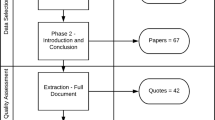Abstract
The research reported in this paper set out to investigate ethics in the initial stages of construction projects. Briefing is the first real contact stage between the commissioner (client/employer) of a project — at this stage a potential project — and those involved in project realization — the designers and, subsequently, the constructors. It is well known that early decisions are of greatest impact and so, the importance of the initial contacts, communications and consequent decisions are paramount. Different project participants are known to pursue individual objectives to varying degrees as well as possessing different perspectives and perceptions and operating/behaving in different ways. Hence, determination of the appropriate form, content etc. of a project is, inevitably, a matter of exercising value judgements and compromises and so, involves ethical considerations.
A case study of a project through the briefing stage is reported and analysed, from initial contacts to scheme approval. It is apparent that a number of ethical concerns are manifest through the various actions of the major participants.
Similar content being viewed by others
References
Rosenthal, R., Rosnow, R.L. (1991) Essentials of Behavioral Research: methods and data analysis (2nd edn.), McGraw-Hill, Boston, Mass.
Rokeach, M. (1972) Beliefs, attitudes and values: a theory of organization and change, Josey Bass, San Francisco.
Trompenaars, F., Hampden-Turner, C. (1997) Riding the Waves of Culture: understanding cultural diversity in business (2nd edn.), Nicholas Brealey, London.
Snell, R. (1995) Psychic Prisoners? Managers facing Ethical Dilemmas: cases from Hong Kong, In Stewart, S., Donleavy, G. (Eds.), Whose Business Values, Hong Kong University Press, Hong Kong, pp. 143–163.
Hinman, L.M. (1997) Ethics: A Pluralistic Approach to Moral Theory, Harcourt Brace Jovanovich, Orlando, FL.
Leary, M.R. (1991) Introduction to behavioral research methods, Wadworth, Belmont, CA.
Koehn, D. (1994) The Ground of Professional Ethics, Routledge, London.
Pritchard, J. (1997) Acting Professionally: Something that business organisations and professionals both desire? In Davis, P. W. F. (Ed.), Current issues in Business Ethics, Routledge, London, pp. 87–96.
Bayles, M.D. (1988) The professional — client relationship, In Callahan, J. C. (Ed.), Ethical issues in professional life, Oxford University Press, Oxford, pp. 113–119.
Airaksinen, T. (1994) Service and Science in Professional life, In Chadwick, R. (Ed.) Ethics and the Professions, Avebury, Aldershot, UK, pp. 1–13.
Reeck, D. (1982) Ethics for Professions: A Christian Perspective, Augsbury Publishing, Minneapolis.
Henry, C. (1995) Introduction to professional ethics for health care professionals, In Henry, C., Jane, P. (Eds.), Professional Ethics and Organizational Change in Education and Health, Edward Arnold, London, p. 13.
MacIver, R.M. (1995) The social significance of professional ethics, Annals of the American Academy of Political and Social Science 297: 118–124.
Beyerstein, D. (1993) The functions and limitations of professional codes of ethics, In Winkler, E.R., Coombs, j. R. (Eds.), Applied Ethics: A Reader, Blackwell, Oxford, pp. 416–425.
Taeusch, C.F. (1935) Professional Ethics, In Edwin, R. A., Seligman, Johnson, A. (Eds.), Encyclopaedia of Social Sciences, Vol. 12, Basingstoke: Macmillan, 201–250.
Kultgen, J. (1982) The ideological use of professional codes, Business and Professional Ethics Journal 3: 52–69.
Bayles, M.D. (1989) Professional Ethics (2nd edn.), New York: Wadsworth.
Mackinder, M., Marvin, H. (1982) Design Decision Making in Architectural Practice, Research Paper 19, Institute of Advanced Architectural Studies, University of York.
Lera, S. (1982) At the Point of Decision, Building, 28 May, 47–48.
Stewart, S. (1995) The Ethics of Values and the Value of Ethics: should we be studying business values in Hong Kong?, In: Stewart, S., Donleavy, G. (Eds.), Whose Business Values, Hong Kong University Press, Hong Kong: 1–18.
Aristotle (1992) Eudemian Ethics, (trans. Rackham, H.) Cambridge, Mass.: Harvard University Press.
Ferrell, O.C., Weaver, K.M. (1978) Ethical beliefs of marketing managers, Journal of Marketing 42: 69–73.
Leisinger, K.M. (1995) Corporate Ethics and International Business: some basic issues, In Stewart, S., Donleavy, G. (Eds.), Whose Business Values, Hong Kong University Press, Hong Kong, pp. 165–202.
Lay, R. (1993) Dis Macht der Moral, Unternehmenserfolg durch ethisches Management [Success in Business through Ethical Management], Econ Taschenbuch Verlag, Düsseldorf.
Stevens, B. (1994) An analysis of corporate ethical code studies: where do we go from here?, Journal of Business Ethics 13: 63–69.
Langlois, C.C., Schlegelmilch, B. B. (1990) Do corporate codes of ethics reflect national character? Evidence from Europe and the United States, Journal of International Business Studies 4: 519–539.
Friedman, M. (1970) The Social Responsibility of Business is to Increase its Profits, New York Sunday Times Magazine, 13 September, pp. 32–34, 122–126.
Edwards, B. (2002) Libraries and Learning Resource Centres, Architectual Press, Oxford.
Baumol, W.J. (1959) Business Behaviour, Value and Growth, Macmillan, New York.
Author information
Authors and Affiliations
Corresponding author
Rights and permissions
About this article
Cite this article
Fellows, R., Liu, A. & Storey, C. Ethics in construction project briefing. SCI ENG ETHICS 10, 289–301 (2004). https://doi.org/10.1007/s11948-004-0025-5
Issue Date:
DOI: https://doi.org/10.1007/s11948-004-0025-5




